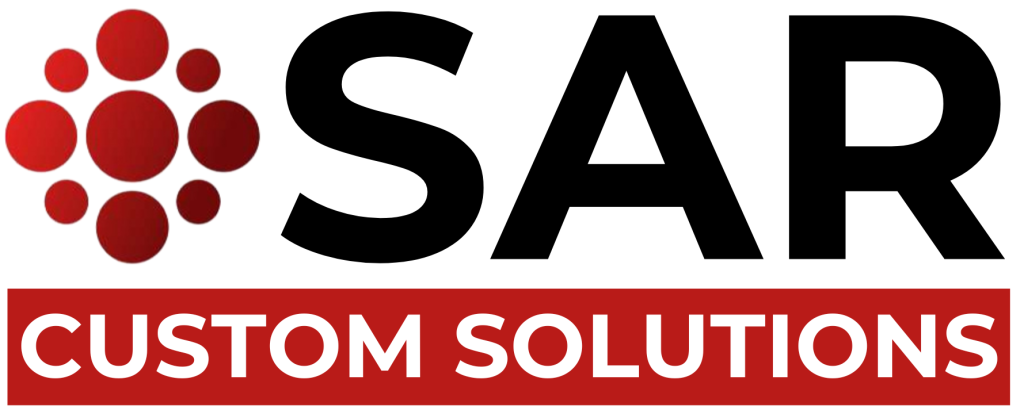In the fast-paced world of modern business, staying competitive requires a strategic approach to technology. One such game-changing innovation is the adoption of cloud-based software solutions. This article will delve into the various facets of these solutions, highlighting their benefits, security measures, customization options, and their impact on collaboration and remote work.
Definition of Cloud-Based Software Solutions
At its core, cloud-based software refers to applications and programs that operate via the internet rather than on physical hardware. These solutions are hosted on remote servers, providing businesses with the flexibility to access data and applications from anywhere with an internet connection.
Evolution in Business Technology
Over the years, there has been a remarkable evolution in the way businesses leverage technology. Cloud-based solutions have emerged as a key player, offering a plethora of advantages that traditional software models struggle to match.

Benefits of Cloud-Based Software Solutions
Cost Efficiency
One of the primary advantages is cost efficiency. Cloud-based solutions eliminate the need for substantial upfront investments in hardware and infrastructure. Businesses can opt for a subscription-based model, paying only for the services they use.
Scalability
Scalability is crucial for businesses with fluctuating workloads. Cloud solutions allow for seamless scaling, whether it’s increasing storage capacity or expanding ERP Software Development Services features to accommodate growth.
Accessibility
The cloud breaks down geographical barriers, providing unparalleled accessibility. Team members can collaborate in real-time, irrespective of their location, fostering a more connected and efficient work environment.
Security Measures in Cloud-Based Software
Encryption
Security is a paramount concern for businesses. Cloud solutions incorporate advanced encryption protocols, ensuring that data remains secure during transmission and storage.
Multi-Factor Authentication
To bolster security further, multi-factor authentication adds an additional layer of protection. This helps safeguard sensitive business information by requiring multiple verification steps for access.
Regular Updates
Cloud providers prioritize security updates, addressing vulnerabilities promptly. This proactive approach ensures that businesses are protected against emerging threats.
Integration and Compatibility
Seamless Integration with Existing Systems
Cloud-based software seamlessly integrates with existing business systems, streamlining operations and minimizing disruptions during implementation.
Cross-Platform Compatibility
The flexibility to operate on various devices and operating systems enhances compatibility, ensuring a smooth user experience across the board.
Customization and Flexibility
Tailored Solutions for Business Needs
Cloud solutions offer a high degree of customization, allowing businesses to tailor applications to their specific requirements. This flexibility ensures that the software aligns perfectly with organizational goals.
Easy Adaptability to Changes
In an ever-changing business landscape, adaptability is key. Cloud-based solutions enable businesses to swiftly adapt to changes in market conditions or internal processes.
Collaboration and Remote Work
Facilitating Team Collaboration
Cloud collaboration tools enable seamless communication and project management, fostering teamwork regardless of physical locations.
Empowering Remote Work
The ability to access work-related data and applications remotely empowers businesses to embrace remote work models, enhancing workforce flexibility.
Data Management and Storage
Efficient Data Handling
Cloud solutions provide efficient data management capabilities, ensuring that businesses can organize and retrieve information effortlessly.
Data Backup and Recovery
Automatic data backups and robust recovery mechanisms safeguard against data loss, offering businesses peace of mind.
User-Friendly Interface
Intuitive Design
Cloud-based software development often features intuitive interfaces, reducing the learning curve for users and increasing overall efficiency.
Minimal Learning Curve
The user-friendly nature of cloud solutions minimizes the time required for training, allowing businesses to quickly leverage the full potential of the software.
Future Trends in Cloud-Based Software
Artificial Intelligence Integration
The integration of artificial intelligence in cloud solutions represents the next frontier, promising advanced analytics, automation, and intelligent decision-making capabilities.
Edge Computing in the Cloud
The rise of edge computing within the cloud infrastructure opens new possibilities for faster processing and reduced latency, enhancing overall performance.
Selecting the Right Cloud-Based Software
Considerations for Business Requirements
Choosing the right cloud solution involves a thorough assessment of business needs, ensuring that the selected software aligns with specific objectives.
Evaluating Vendor Reputation
The reputation of the cloud service provider is paramount. Businesses must consider factors such as reliability, security track record, and customer support when making a decision.
Conclusion
In conclusion, the power of cloud-based software solutions cannot be overstated. From cost efficiency to scalability and security, these solutions have reshaped the way businesses operate in the digital age. Embracing cloud technology is not just an option; it’s a strategic imperative for those aiming to stay ahead in a competitive landscape.
Frequently Asked Questions
- Are cloud-based solutions suitable for small businesses?
- Cloud solutions are highly scalable, making them suitable for businesses of all sizes. Many providers offer tailored plans for small enterprises.
- How secure are cloud-based software solutions?
- Cloud solutions employ robust security measures, including encryption and multi-factor authentication, to ensure the protection of sensitive data.
- Can cloud solutions be customized to fit unique business needs?
- Yes, cloud-based software is designed to be highly customizable, allowing businesses to adapt applications to their specific requirements.
- What challenges might businesses face during cloud implementation?
- Common challenges include data migration, user training, and potential resistance to change. However, these can be overcome with proper planning and support.
- How can businesses measure the success of their cloud adoption?
- Success can be measured through factors such as increased efficiency, cost savings, and improved collaboration, all contributing to a positive return on investment.

